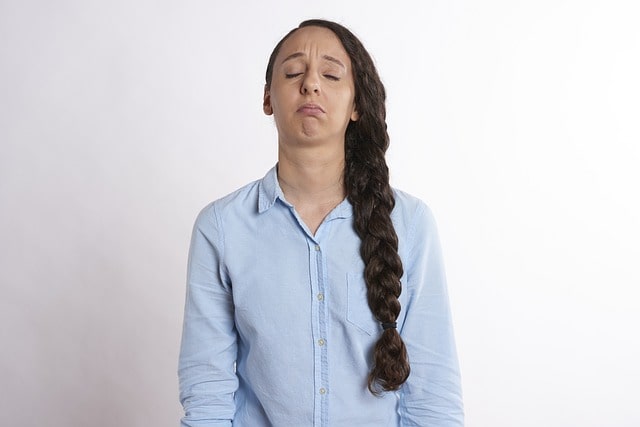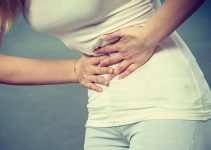 Many women are aware of differences in the emotional and physical state throughout the month. Some particular changes do exist. They concern body weight, skin, mood or energy fluctuations.
Many women are aware of differences in the emotional and physical state throughout the month. Some particular changes do exist. They concern body weight, skin, mood or energy fluctuations.
Research shows that hormonal changes/Endocrinopathies are the leading cause of fatigue. Thus, it is right to ask if ovulation causes tiredness or not? And why does it occur and how to overcome it?
To start with, It is essential to know the basics of ovulation. Ovulation is the release of a mature egg from an ovary, which usually occurs 12 to 14 days before the start of the next period.
Women with regular cycles can subtract 14 from the period day to estimate the ovulation day. In the case of longer cycles or irregular periods, things will fluctuate even more.
Ovulation is a very complicated thing because it involves many hormones. Before ovulation, the brains produce continuous bursts of follicle stimulating hormone (FSH), and follicles generate estrogen. When the amount of estrogen reaches its upper peak, the egg is ready to be released.
Then the brains produce luteinizing hormone (LH) which triggers ovulation. The egg releases in 12 hours after LH peaks. Under LH effect follicle starts to produce progesterone instead of estrogen.
If the egg isn’t fertilized, “yellow body,” temporary endocrine structure in female ovaries being a progesterone-making machine, begins to degrade and hormones drop, triggering your period.
Thus, during each period, numerous hormonal changes are happening.
Feeling tired during ovulation is normal – a result of such extreme hormonal changes. Some women feel exhausted once in a while.
Some of them can experience chronic fatigue syndrome symptoms which include headache, nausea, loss of appetite, and drowsiness.
Many causes affect a woman’s energy and mood during ovulation. Some of them are more or less normal, but some can be a mistake for real psychological or physiological problems. Therefore, extreme fatigue during ovulation can be a matter of concern.
Let’s try to find out the common causes of ovulation fatigue and look at the ways to bring back the energy levels.
To overcome ovulation fatigue, One needs to know its reasons:
- Poor sleep quality (insomnia, jet lag, inadequate sleep)
- Stress
- Depression
- Unhealthy diet (junk food, malnutrition, overeating)
- Excessive caffeine intake
- Little water consumption
- Severe workouts or lack of physical activity
- Low iron intake
- Diabetes
- Heart diseases
- Fibromyalgia
- Certain medications, especially hormonal drugs
Sometimes ovulation fatigue can happen due to more severe health problems such as viral or bacterial infections, inflammation or mental trauma. They require treatment and assessment by a doctor.
Fortunately, for most women, these monthly fluctuations in energy levels are not due to any severe health issue, and there are specific ways to reclaim the energy, to feel recharged:
Rest more and take time away
Take some time away from everything and relax. Do not feel bad or remorse for not being active. Do it for your health and productivity after ovulation.
Take some time to restore your energy. Sometimes relaxation is just what your body wants to stop tiredness symptom in a specific time of your period.
Eat a healthy and balanced diet
Bad eating habits can often be a cause of severe ovulation fatigue. And in this case, eating a balanced diet will help you prevent many symptoms. Feeling tired is closely connected with your blood sugar level.
To keep it at normal level, eat breakfast every day, have enough protein intake (fish, meat, beans, eggs, etc.) and carbs (whole grains, green vegetables, pumpkin), have regular meals during a day and eat snacks in-between.
But do not overeat, be moderate in a number of calories but include enough food variety into your diet.
Drink enough water
Dehydration can also cause ovulation fatigue. Do not wait until you feel thirsty because your body feels dehydration earlier. Drink water regularly as you need, especially when you work out.
Sleep
Sleep can undeniably ease your fatigue syndrome. Studies show that most adults are not having enough qualitative and quantitative sleep, and it is emerging as one of the leading causes of endocrinopathies and metabolic diseases.
The best thing to do is to have a nap or two, but it is not practicable for women who have jobs, kids or other duties.
Then plan your daily routine properly and have enough sleeping hours at night. Make your bedroom sleep oasis and avoid mental tasks before going to bed.
Physical activity
The workout is a real energizer for your body. The more active the woman is, the more energy and strength she feels. Physical activity helps boost mood, cope with exhaustion and everyday life difficulties.
One exercise session in the gym, a simple walk in the open air or short yoga practice will recharge you, but regular physical activity will keep you more healthy for a long time.
Enjoy sunlight
Natural light helps you regulate your mood and ease tiredness- it helps correct melatonin levels in the body, regularize circadian rhythm, reduce symptoms of depression.
It makes you feel energized and more attentive. If you spend much of your time in a windowless office or have cloudy weather, use blue bulb lightening to substitute natural rays of the sun.
Plan your tasks appropriately and manage your time
Save interesting tasks for the least energetic hour to keep your attentiveness and interest. When doing things, avoid distractions like social networks.
Also, do not hesitate to use do-it lists that can help you to manage your time during a day. Learn to say “no” and avoid doing complex tasks during those days.
Fight with stressors
Avoid or at least reduce caffeine, alcohol, and nicotine that stimulate and increase your level of stress. Try various stress reduction techniques like meditation or self-hypnosis.
Some psychologists recommend sniffing rosemary stem. Do not worry if you find it difficult to relax at first. Stress-fighting requires specific skills, but over time it will be much easier for you.
Fatigue and exhaustion is a real challenge for your organism, and they can significantly affect a woman’s everyday life. Take these seriously.
Following these tips, and you will feel more comfortable and will be able to carry out your daily duties more readily.
If your unpleasant symptoms do not go away within 3-4 months better consult a physician, as it may say about more severe hormonal issues or these symptoms may be an indicator of some psychiatric or organic disease.




 Dr. Preet Pal SB is a physician (M.D. Medicine) with a specialization in diabetes (Fellowship in diabetes, Royal Liverpool Academy). He has a particular interest in metabolic disorders, considering that they are rising in every corner of the world, more so in India.
Dr. Preet Pal SB is a physician (M.D. Medicine) with a specialization in diabetes (Fellowship in diabetes, Royal Liverpool Academy). He has a particular interest in metabolic disorders, considering that they are rising in every corner of the world, more so in India.